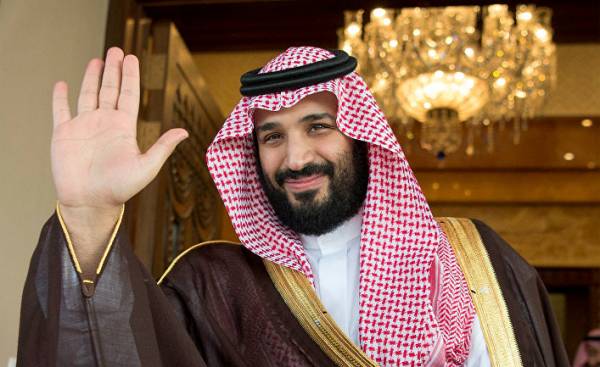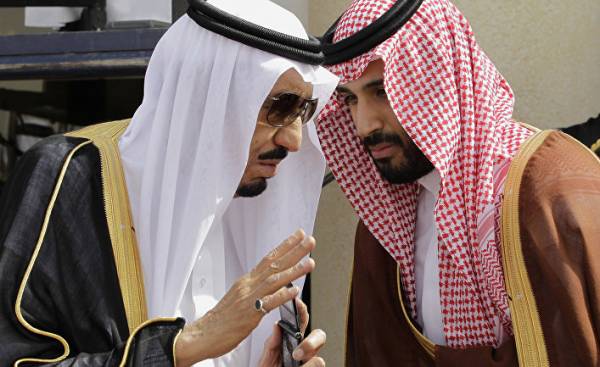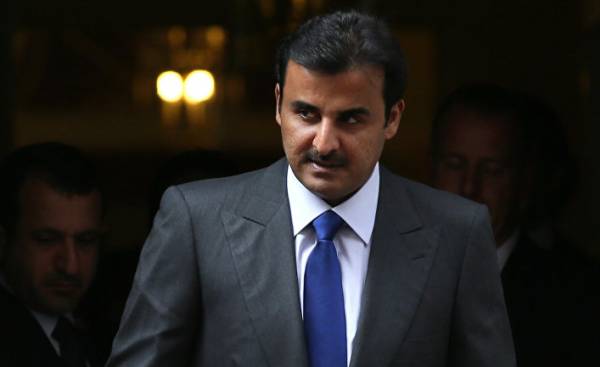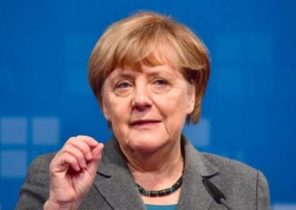
Over the past few weeks, attention in the middle East facing the Arabian Gulf. First, the events related to Qatar, and then change the crown Prince in Saudi Arabia suddenly intensified internal political processes in the region. This revival began after the President of the United States Donald trump visited the region.
When trump in their foreign visits chose Saudi Arabia as the first Islamic country, it somehow caused the U.S. redefine its policy towards the region? On the other hand, no less popular and such a question: whether these changes are the desire of Saudi Arabia to strengthen its relations with the United States?
Attention events aimed at the isolation of Qatar. First, Saudi Arabia, Bahrain, United Arab Emirates, Egypt severed its diplomatic relations with that country and imposed a blockade.
The European Union responded quickly to the events associated with Qatar, and said he supported the mediation efforts of Kuwait. In the U.S., while the state Department drew attention to the risks of isolation of Qatar, President of trump strongly supported this decision and stressed the importance that Qatar refused to support radical Islamic terrorism.
Shortly thereafter, the U.S. Department of state, making this time a statement similar to the EU position, has eliminated the impression that between him and the President trump to have disagreements. In this regard, began to gain strength the notion that the basic parameters of the crisis in the Persian Gulf, which began to develop in relation to the Qatar emerged on the axis of the trump of Saudi Arabia.
Yesterday the king of Saudi Arabia, dismissing his nephew Muhammad Ibn Nayef, whom he had previously declared the crown Prince, appointed his son Muhammad bin Salman as the new heir. The new crown Prince for 32 years, while the Nayef 57 years. Along with the significant generational difference, the young heir and his predecessor different approaches and ideas on many issues.
To the removal from office of crown Prince Nayef held the posts of Deputy Prime Minister and Minister of internal Affairs. In Saudi Arabia Nayef for many years was at the forefront of the fight against terrorism and in 2004-2007 has made an important contribution to the targeting of al-Qaida (banned in Russia — approx. ed.). It was made the attempt. The attack of the suicide bomber “al-Qaeda” who tried to kill Nayef, the former heir to the Saudi throne was seriously wounded, but survived. It is argued that the decision of resignation of Nayef could also play a role in the deterioration of his health.
 © AP Photo Hassan Ammar, FileНаследный Prince Salman bin Abdul-Aziz al Saud with his son Mohammad bin Salman, 2012
© AP Photo Hassan Ammar, FileНаследный Prince Salman bin Abdul-Aziz al Saud with his son Mohammad bin Salman, 2012
At the same time, Nayef was known as the representative of the Saudi Kingdom, which is in good relations with the Emir of Qatar. Therefore, the removal of Nayef from the position of crown Prince may further complicate the settlement of the crisis in relations between Saudi Arabia and Qatar. First, the king of Saudi Arabia broke off diplomatic relations with Qatar, and then sent in the resignation of Nayef, and it demonstrates an interesting integrity.
King Salman is 83 years old and he is sick. It is known that the wounds received by Nayef in the assassination attempt has affected his health. In this regard, it is assumed that the king is preparing to leave the throne and paves the way to the throne to his son. In this case, Saudi Arabia may come a long period of stability.
However, this stability will only be effective from the point of view of the Royal dynasty. The young heir is known for very dramatic views in foreign policy. Previously occupying the post of defense Minister, he played an active role in making Saudi Arabia joined the Yemeni adventure. At the same time, he is a staunch opponent of Iran. These features, if we consider the goal of the United States to contain Iran in the Persian Gulf, can allow the US and Saudi Arabia to create a strong Union based on a single platform.
The signals that a new heir can catch a wave with US, not limited only to his approach to Iran. At the same time, a young Salman adheres to the same opinion, and the United States, on issues such as the increasing weakening position of Russia in the Eastern Mediterranean and Syria, serious efforts to fight ISIS (banned in Russia — approx. ed.), “Hezbollah” and “Muslim brotherhood”, the instability of the Assad regime in Syria.
 © AP Photo, Tim IrelandЭмир of the state of Qatar, Sheikh Tamim bin Hamad al-Thani
© AP Photo, Tim IrelandЭмир of the state of Qatar, Sheikh Tamim bin Hamad al-Thani
It is even said that the last time the heir Salman secretly negotiated with some senior Israeli officials. Rumor has it that the son of trump, Kushner and the young Salman exchanged views about the state of the Palestinian-Israeli conflict.
Also rumours being suggested that the move, launched by Saudi Arabia against Qatar, was aimed at creating a positive background in relations with Israel. Thus, Saudi Arabia, in a sense, makes Qatar move away from Hamas. And it naturally must please Israel.
Turkey, as always, continues to support Qatar, which became a victim. Won’t have Turkey this support to the victim, and who will support it? During the renovation period balances in the Persian Gulf, the answers to these questions remain a mystery.







